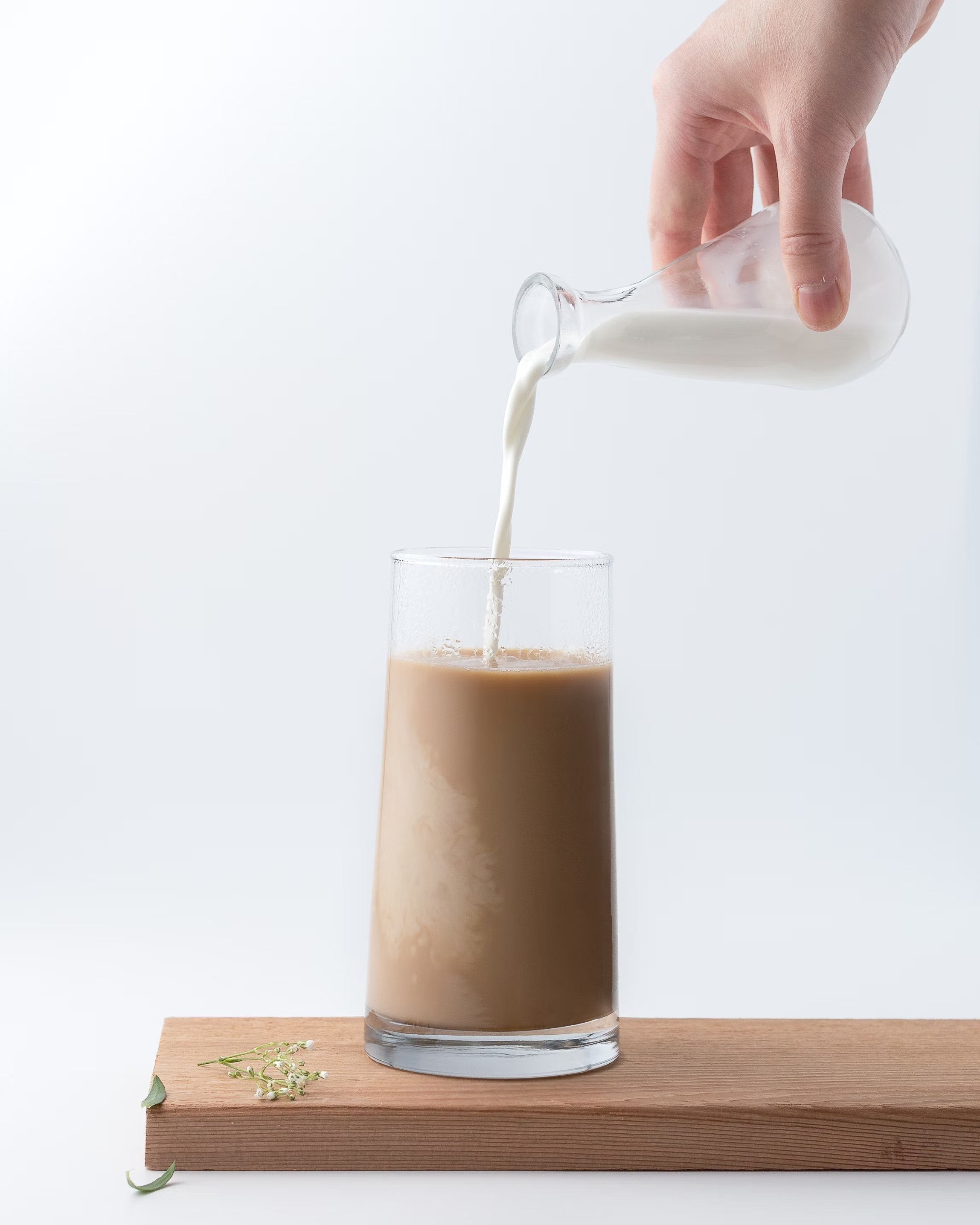Chocolate Milk Calories: The Sweet Truth
Chocolate milk, a sweetened version of traditional milk, has gained widespread popularity as a flavorful alternative to plain milk and as a post-workout recovery drink. It contains the same beneficial nutrients as regular cow's milk, including protein, calcium, vitamins, and minerals. However, the additional chocolate and sweeteners increase the calorie and sugar content. The exact calorie count can vary depending on the fat content of the milk used—whole, reduced-fat, or skim—and the amount of added sugars.

Chocolate milk, a sweetened version of traditional milk, has gained widespread popularity as a flavorful alternative to plain milk and as a post-workout recovery drink. It contains the same beneficial nutrients as regular cow's milk, including protein, calcium, vitamins, and minerals. However, the additional chocolate and sweeteners increase the calorie and sugar content. The exact calorie count can vary depending on the fat content of the milk used—whole, reduced-fat, or skim—and the amount of added sugars.
On average, a cup of chocolate milk can have around 190 calories, but this number can fluctuate. It's also important to consider the nutritional value beyond just calories; for instance, chocolate milk serves as an excellent source of protein and can help replenish glycogen stores due to its carbohydrate content. The precise balance of these nutrients is essential for those monitoring their intake for health or fitness reasons.
Nutritional Profile of Chocolate Milk
Chocolate milk offers a combination of carbohydrates, proteins, and fats, presenting a diverse nutrient profile that varies based on the type of milk used. It includes important vitamins and minerals, but also sugars and calories that should be considered in the context of one's diet.
Caloric Content
A typical serving size of chocolate milk, which is usually one cup (8 ounces), can have a caloric range depending on whether it's made with whole milk, reduced fat, or skim milk. For instance, 1 cup of whole chocolate milk contains around 208 calories, while skim chocolate milk provides fewer calories due to less fat content.
Macronutrients and Sugars
The macronutrient breakdown of chocolate milk includes proteins, carbohydrates, and fats. Regular chocolate milk has approximately 7.99 grams of protein, 24 grams of carbs—mainly from sugars like lactose and added sweeteners—and 2.5 grams of fat. Of the carbohydrates, a significant portion is attributed to sugars, amounting to about 22.01 grams per serving.
Vitamins and Minerals
Chocolate milk is a source of various vitamins and minerals. A single serving can contribute 20% of the daily value (DV) for calcium and phosphorus, and smaller percentages of potassium, sodium, magnesium, zinc, and vitamins A, D, and B12. These nutrients support bone health, muscle function, and overall well-being.
Types of Chocolate Milk
Types of chocolate milk vary from traditional whole milk versions to those made with skim milk or plant-based alternatives. Whole chocolate milk is higher in calories and fat, whereas skim chocolate milk has less fat and thus fewer calories. Plant-based chocolate milk options provide an alternative nutritional profile, often lower in protein and differing in vitamin and mineral content.
Health Considerations
Consuming chocolate milk should be balanced with an individual's dietary needs, considering its sugar and fat content. While it can be a post-workout recovery drink due to its protein and carbohydrate content, excessive consumption may contribute to obesity and heart disease. Conversely, its nutrient content can support weight loss and bone health when integrated into a balanced diet.
Diet and Consumption
When considering chocolate milk in the context of diet and health, it's essential to understand its calorie content, how it fits into dietary guidelines, and available alternatives for those monitoring their calorie intake.
Recommended Intake
The Recommended Daily Intake (RDI) for calories varies by individual, based on factors such as age, gender, and activity level, but a common benchmark is 2,000 calories per day for adults. An 8-ounce serving of whole chocolate milk contains about 208 calories, making up approximately 10% of a 2,000-calorie diet. It is cautioned not to consume chocolate milk in excess, as it can contribute to weight gain and obesity if not accounted for within one's daily calorie limits.
Incorporating into Diet
For those including chocolate milk in their diet, awareness of serving sizes is crucial, and it may be helpful to use a calorie counter or food diary. A single serving can be a part of a balanced diet if those calories are considered in the day's total intake. Options include lowfat and plant-based milks, such as oat milk, which tend to be lower in calories. For weight loss efforts, ensuring that the consumption of chocolate milk does not exceed calorie expenditure is key.
| Milk Type | Calories per 8 oz | | ----------------------------- | ----------------- | | Whole Chocolate Milk | 208 | | 2% Chocolate Milk | 190 | | Skim Chocolate Milk | 160 | | Oat Milk (Chocolate Flavored) | 120 |
Alternative Options
Individuals may explore alternative options to traditional cow's milk, such as plant-based milks like almond, soy, or oatmilk, which often contain fewer calories and less or no added sugars. Kefir, a fermented milk drink, can be a nutritious alternative with a different nutrient profile, including probiotics and less sugar. Choosing versions of chocolate milk or its alternatives with reduced added sugars and lower fat content can align better with a health-conscious diet regimen, particularly for those tracking dietary fiber and total carbohydrate.
Want more posts like this?Sign up for our FREE newsletter →